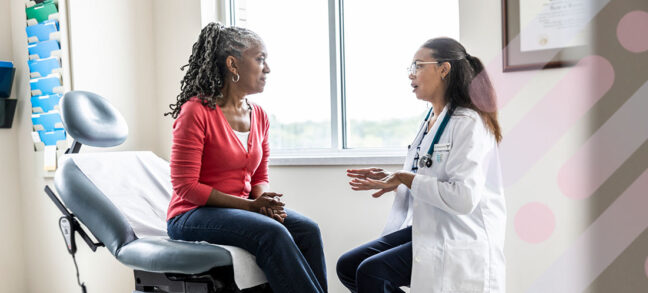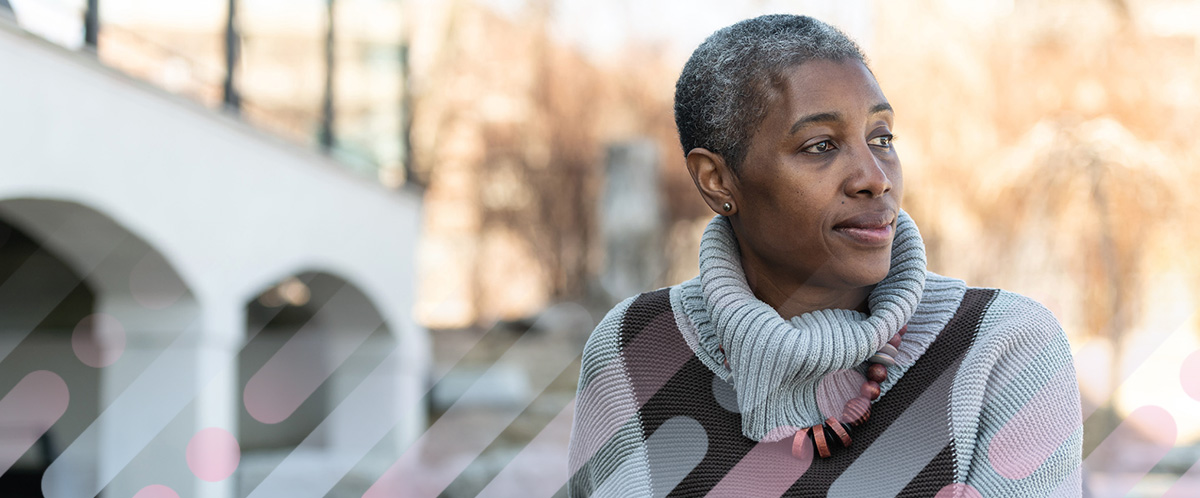Breast cancer affects all populations, but African American women are more likely to die1 from the disease than any other racial or ethnic group. This unsettling fact is the result of numerous health disparities faced by Black women every day. Here’s a quick glance at why these disparities exist and what we can do about them.
the startling reality
African American women have the highest breast cancer death rate of all racial and ethnic groups. And although incidence rates are similar to those of white women, Black women have a much higher mortality rate. In fact, they are 42 percent more likely to die from the disease.1 And if that’s not upsetting enough, while the cases of breast cancer in white women have stabilized in recent years, the cases among Black women continue to rise.2
how did we get here?
The reasons for these disparities are complex and multifaceted, but both genetic and socioeconomic factors are believed to play significant roles. Some socioeconomic factors that may be to blame include poor screening, inadequate care, unequal access to treatment and lack of education.3,4
support those creating change
Since so many factors can cause breast cancer disparities, addressing them is not as straightforward as we’d all like. One thing we can all do is support breast cancer organizations helping communities of color. Sisters Network, Inc. is a good start. A national African American breast cancer survivorship organization, they work to educate Black women about their unique risks and eliminate the disparity.
look out for each other
We are a powerful community of women. Let’s show up for each other—whether that means calling a friend and encouraging her to get screened or posting on social media about bridging the gap in treatment. Educate, advocate and speak up whenever possible. Sure, the issue is much larger than any one of us, but we all have an obligation to demand equal access to quality breast healthcare for all our fellow women.
references
- American Cancer Society. Cancer Facts & Figures for African Americans 2016-2018. Atlanta, GA: American Cancer Society; 2016.
- SEER Cancer Statistics Factsheets: Female Breast Cancer. National Cancer Institute. Bethesda, MD, http://seer.cancer.gov/statfacts/html/breast.html
- https://www.cancer.gov/about-cancer/understanding/disparities
- https://www.cancer.net/blog/2020-06/cancer-does-not-affect-all-people-equally-expert-qa-cancer-disparities-and-health-equity
Resensation Blog

How does mastectomy impact the nerves in the breast?
One sometimes overlooked aspect of mastectomy is its impact on nerves. Read what happens to nerves during mastectomy and explore…
Read More
What happens during implant breast reconstruction with Resensation®?
By repairing sensory nerves, Resensation® enables you to potentially regain sensation to your chest. Read how this procedure works during…
Read More
how resensation® helped Leanna feel secure in her family’s future
With Resensation®, Leanna can be there to watch her kids grow up—without losing the feeling of being whole.
Read More
sensory retraining: what is it, and how can it help me after resensation®?
Sensory retraining is a series of exercises designed to help you reconnect with your body after breast reconstruction with Resensation®.
Read More